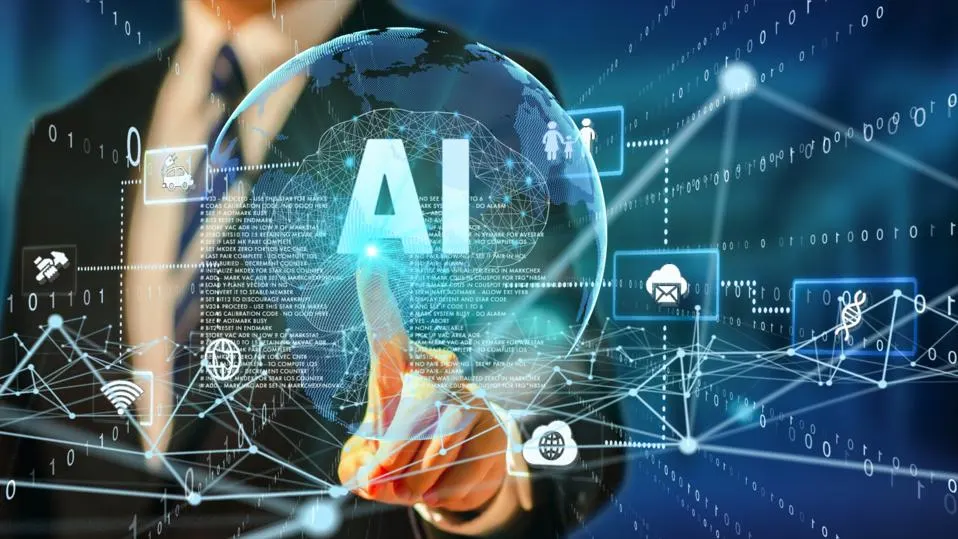The financial services industry finds itself at a pivotal technological juncture. Two groundbreaking technologies—artificial intelligence and blockchain—are reshaping how we think about money, transactions, and financial services. These innovations aren’t just buzzwords; they’re driving real change that affects everyone from individual consumers to multinational corporations. Understanding their combined impact reveals why FinTech companies are racing to integrate these technologies into their core operations.
Introduction to AI and Blockchain in FinTech
Financial technology has evolved rapidly over the past decade, but nothing compares to the transformative potential of AI and blockchain working together. AI brings intelligence and automation to financial processes, while blockchain provides security, transparency, and decentralization. When combined, these technologies create opportunities that neither could achieve alone. FinTech companies are leveraging this powerful combination to build more efficient, secure, and accessible financial services that serve customers better than traditional banking ever could.
AI’s Impact on Financial Services
Artificial intelligence has fundamentally changed how financial institutions operate and serve their customers. Machine learning algorithms now power everything from fraud detection systems that identify suspicious transactions in real-time to robo-advisors that provide personalized investment advice at a fraction of traditional costs. Banks use AI chatbots to handle customer inquiries 24/7, while credit scoring models powered by machine learning can assess loan applications in minutes rather than days. AI systems have revolutionized risk management by analyzing vast amounts of market data to predict potential threats and opportunities with unprecedented accuracy.
Blockchain’s Role in Revolutionizing Finance
Blockchain technology addresses some of finance’s most persistent challenges: trust, transparency, and intermediary costs. By creating immutable records of transactions, blockchain eliminates the need for multiple parties to verify the same information repeatedly. We can now complete cross-border payments in minutes with significantly lower costs, which previously took days and involved multiple fees. When predetermined conditions meet, smart contracts automatically execute agreements, eliminating the need for manual oversight and potential human error. The technology also enables new forms of digital assets and decentralized finance applications that operate without traditional banking infrastructure.
Synergies and Use Cases of AI and Blockchain
The real magic happens when AI and blockchain work together. AI can analyze blockchain data to identify patterns and anomalies that would be impossible for humans to detect, which enhances security and compliance monitoring. Smart contracts can incorporate AI decision-making capabilities, creating truly autonomous financial services. For example, insurance claims processing can be automated using AI to assess damage from photos and blockchain to execute payouts instantly when claims meet predetermined criteria. Trading platforms use AI to make split-second decisions, while blockchain ensures all transactions are recorded transparently and securely.
Challenges and Considerations
Despite their potential, implementing AI and blockchain in FinTech isn’t without obstacles. Regulatory compliance remains complex as financial authorities work to understand and govern these new technologies. Scalability concerns persist, particularly with blockchain networks that can become slow and expensive during peak usage. Data privacy questions arise when AI systems require large datasets, while blockchain’s transparency can conflict with privacy requirements. Energy consumption, especially with certain blockchain implementations, raises sustainability concerns. Financial institutions must also address the skills gap, as finding talent proficient in both AI and blockchain technologies remains challenging.
The Future of FinTech with AI and Blockchain
The future promises even more sophisticated integration of these technologies. Central bank digital currencies will likely combine blockchain’s security with AI’s analytical capabilities to create more efficient monetary systems. Personalized financial services will reach new levels of customization as AI systems analyze blockchain-recorded financial histories to offer tailored products and services. Decentralized autonomous organizations could emerge as new forms of financial institutions, operating entirely through smart contracts and AI governance. The democratization of financial services will continue as these technologies make advanced financial tools accessible to underserved populations worldwide.
Ready for the FinTech Revolution?
AI and blockchain are not just transforming FinTech—they’re redefining what financial services can be. Companies that embrace these technologies now will lead the next generation of financial innovation, while those that hesitate risk becoming obsolete. The combination of AI’s intelligence and blockchain’s trust creates unprecedented opportunities to build better, faster, and more inclusive financial systems. As these technologies continue to mature and integrate, they will unlock new possibilities we’re only beginning to imagine.
FAQs
1. How do AI and blockchain work together in FinTech?
AI analyzes data and makes intelligent decisions, while blockchain securely records and verifies those decisions. Together, they create automated, transparent, and intelligent financial services that operate with minimal human intervention.
2. What are the main benefits of using AI and blockchain in finance?
The primary benefits include reduced costs, faster processing times, enhanced security, improved accuracy, better customer experiences, and access to financial services for previously underserved populations.
3. What challenges do FinTech companies face when implementing these technologies?
Major challenges include regulatory uncertainty, technical scalability issues, integration complexity, talent shortage, and the need for significant upfront investment in technology infrastructure.
4. Will AI and blockchain replace traditional banking?
Rather than complete replacement, these technologies will likely transform traditional banking by making it more efficient, secure, and customer-focused. Many traditional banks are already adopting these technologies to remain competitive.




